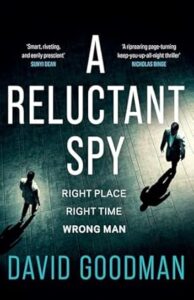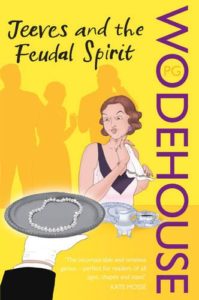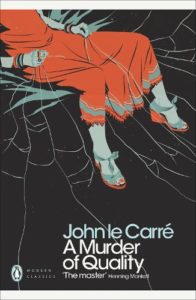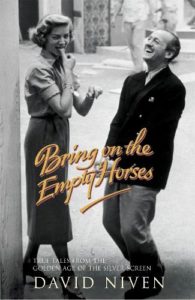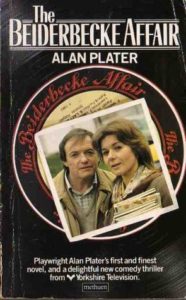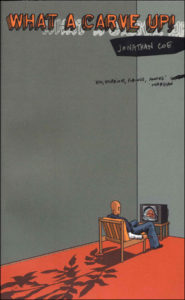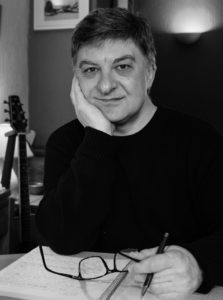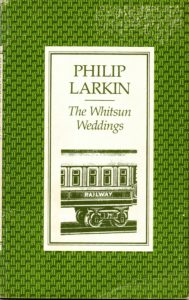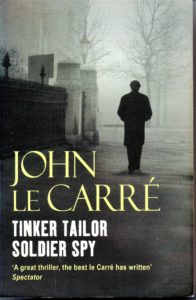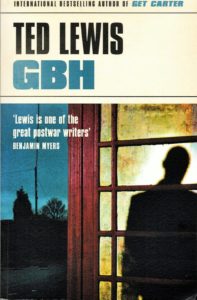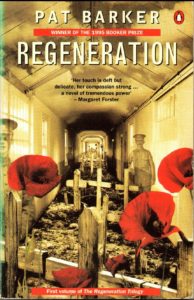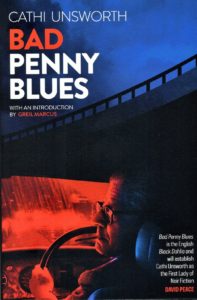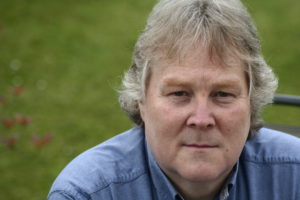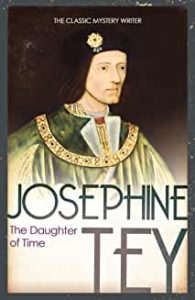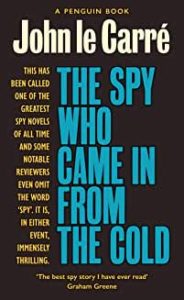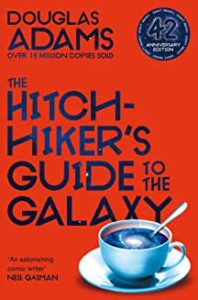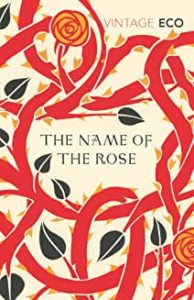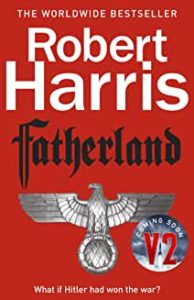Decades: Compiling the Ultimate Library with David Goodman
Welcome back to the Decades Library. This is the ninety eighth time the Library doors have opened – as this site is fully searchable you can pop the word “decades” into the wee search box at the top of the page and revisit all the previous Decades curators. This suggested course of action does carry the Danger To Your TBR health warning as there have been many amazing reading recommendations down the years.
If this should happen to be your first visit to the Decades Library, you are very welcome. Please allow me to explain what is about to unfold…
Back in 2021 I was pondering a dilemma: If I had a brand new library and zero books on the shelves, which books should I add to the library to make sure only the very best books were available to the Library visitors. An Ultimate Library, as it were.
I realised I could not possibly hope to fill a library entirely on my own and that my own reading preferences were far too narrow to make the claim my library would be the Ultimate Library. So I began to invite guests to help me fill my library shelves – each guest is asked to nominate the books they feel belong in my Ultiamte Library.
But there had to be rules (nobody likes chaos). I ask my guests to follow just two rules when they make their selections and this is why my Ultimate Library is known as the Decades Library:
1 – You May Choose ANY Five Books
2 – You May Only Choose One Book Per Decade From Five Consecutive Decades
The Decades Library was born. This week it is an absolute thrill to welcome David Goodman to my Decades Library. Back in September I spent two full days (Decades invitation in hand) hunting for Dave across Stirling while we were at Bloody Scotland. I knew he was there, but tracking down A Reluctant Spy author was a more tricky challenge than I had anticipated. Fortunately email is still a thing and Dave kindly agreed to take on my Decades challenge.
 Enough of my waffling, it is time to pass control to Mr David Goodman:
Enough of my waffling, it is time to pass control to Mr David Goodman:
I’m David Goodman, a novelist and short story writer based in Scotland. My debut novel ‘A Reluctant Spy’ is out now. If you’d like to learn more, you can subscribe to my newsletter.
As a writer who works in both science fiction and thrillers, I’m going to take the opportunity Gordon has given me to talk about books from both sides of the genre divide. We’ll start in the 1960s.
DECADES
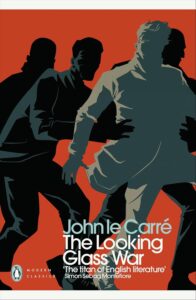 The Looking Glass War
The Looking Glass War
John Le Carré – 1965
Less well known than John Le Carré’s breakout hit ‘The Spy Who Came In From The Cold’, this darkly comedic story of departmental decline, faded glory and the last, desperate attempts to pull off one last intelligence coup is nevertheless packed with espionage and moral grey zones. Like many of Le Carré’s protagonists, Leiser the luckless Polish agent is doomed nearly from the start. But you can’t help hoping that he and the buffoons of the Department that send him into East Germany might just pull it off.
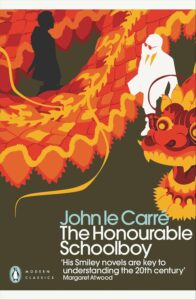 The Honourable Schoolboy
The Honourable Schoolboy
John Le Carré – 1979
If ‘The Looking Glass War’ is all about the small indignities and compromises of a marginalised and failing intelligence service, ‘The Honourable Schoolboy’ takes many of the same themes and puts them on a much broader stage. Following the ‘occasional’ agent Jerry Westerby as he travels across South East Asia at the tail end of the Vietnam War, it tells the story of a complex sting operation designed to flush out the beneficiary of a Soviet money laundering operation in Hong Kong. Desperate to find meaning in the dirty work he’s given to do, Westerby resolves to save the young British woman caught in the centre of the Soviet conspiracy, no matter the cost to himself or his mission. A sprawling, byzantine novel that’s absolutely dripping with atmosphere.
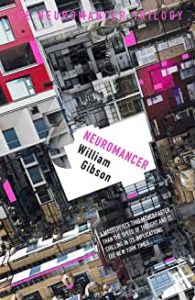 Neuromancer
Neuromancer
William Gibson – 1984
William Gibson’s seminal cyberpunk novel absolutely blew my mind when I first read it in the early Nineties, and it’s all the more remarkable for having been written as early as it was, entirely on a manual typewriter. Indeed, if read by modern audiences it can seem a little derivative and trope-filled, but that’s because this book originated many of the concepts, words and imagery that have become so dominant in our films, tv shows and books. It tells the story of Case, a ‘console cowboy’ attempting to heist data across the virtual reality of the ‘matrix’ in a race with the bomb inside his own head. It still astonishes me that this book was written in a world of record players, payphones and punchcard computers.
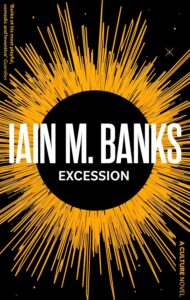 Excession
Excession
Iain M Banks – 1996
Just like ‘Neuromancer’, Iain M Bank’s Culture series of wide-screen SF novels gave me a whole new perspective on life, science fiction and what it might be possible to write as a young man from Scotland. Banks lived a few miles away from where I grew up and I was intoxicated by the idea that someone living in North Queensferry on the other side of the Firth of Forth could have written this galaxy-spanning story of giant, AI-controlled Ships engaged in a conspiracy to cover up an intrusion on our reality from another dimension. Fully half the book is told in a series of nested messages sent between different factions in the shifting AI society that makes up the governing structure of the Culture, so it was an education in both experimental storytelling forms as well as astonishing plot mechanics.
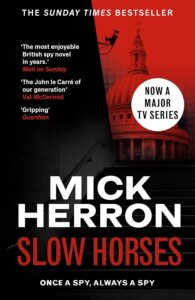 Slow Horses
Slow Horses
Mick Herron – 2010
It depends where you define the end of the Noughties (I’m in the ‘2010 is the last year of that decade, not the first year of the Twenty-Teens’ faction) so I’m sneaking it in. This was the first time that the early books in the series were published and did not sell particularly well – it was nearly another decade before their current staggering success began to take shape. But that’s a testament to the strength of Herron’s setup, characters and driving plot. From the first page and its distinctive framing narrative (each book begins and ends with a swooping, semi-omniscient point of view that sets the mood perfectly) to the hectic, breakneck pace of the ending, I fell in love with the oddball, misfit spooks of Slough House, their oddly menacing yet lovable leader Jackson Lamb and even the tarnished golden boy River Cartwright. As the series goes on and the cast expands (and in some cases suddenly contracts) they get steadily better too. Highly recommended.
It’s a terrific Decades week when I can bring George Smiley and Jackson Lamb together. And I will never be unhappy to see a book by Iain Banks (with or without his “M”). My thanks to Dave for these wonderful additions to my Library – if spy thrillers are your thing then you cannot overlook A Reluctant Spy…essential reading
DECADES WILL RETURN
